Manual testing has remained a cornerstone of software quality assurance for decades. Even with the rise of automation, its role hasn’t vanished – in fact, it becomes most valuable in the early phases of a project or when critical paths are at stake. Human testers can spot the subtle issues that scripts often overlook: a misplaced button, a glitch on a real device, or a quirky behavior that only shows up under unusual conditions.
This article highlights a selection of manual testing companies operating in the United Kingdom. Each takes a slightly different approach to quality assurance, but they share a common thread: attention to detail and recognition of the value that human testers bring to complex development cycles.
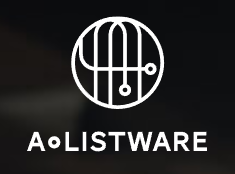
1. A-Listware
We treat manual QA as hands-on work, not a checkbox. Our testers write and refine test cases, run them on real builds, and dig with exploratory sessions when a spec leaves room for interpretation. That includes functional checks, regression sweeps before release, and compatibility reviews across the software we actually ship – web apps, mobile apps, desktop builds, SaaS and data-heavy systems. When automation makes sense, we pair it with human review rather than replace it. This way we keep useful coverage where scripts fall short and still move at a steady pace.
We do this for teams in the United Kingdom as part of broader QA and development engagements. Clients ask us to drop in for a one-off test cycle or to stay on through continuous testing during development and maintenance. With a UK office and an ongoing track record of partnering with UK companies, we handle the routine and the edge cases – from test design and execution to defect triage and acceptance support.
נקודות עיקריות:
- Manual checks covered: functional, regression and exploratory testing
- Work across web, mobile and desktop applications without forcing specific tools
- Fold manual cycles into continuous testing during development and support
- Partner with teams and clients in the United Kingdom through flexible engagement models
שירותים:
- בדיקות תפקוד ידניות
- Manual regression testing before release windows
- Exploratory sessions to uncover edge cases and refine future test cases
- Compatibility testing across platforms and environments
- Usability testing with task-driven scenarios
- Accessibility testing aligned with product requirements
- Test case design and hands-on execution with clear defect reporting
פרטי קשר:
- אֲתַר אִינטֶרנֶט: a-listware.com
- אֶלֶקטרוֹנִי: info@a-listware.com
- פייסבוק: www.facebook.com/alistware
- לינקדאין: www.linkedin.com/company/a-listware
- כתובת: סנט ליאונרדס-און-סי, TN37 7TA, בריטניה
- מספר טלפון: 44 (0)142 439 01 40+

2. בית הבדיקה
Testhouse focuses on software quality assurance with a strong emphasis on work done by human testers when it matters most. Manual specialists design and execute test scenarios, probe edge cases, and validate real user flows before and after automation is in place. That mix helps catch issues that scripted checks can miss, especially in early builds or high-risk areas. Evidence of this shows up in published case studies where teams run structured manual passes alongside other methods.
נקודות עיקריות:
- Manual verification used for critical paths in web and mobile
- Exploratory sessions complement scripted checks
- Traceable test design with scenario coverage and defect tracking
השירותים כוללים:
- Functional and exploratory test execution by QA engineers
- Test case design, review, and maintenance for feature and regression scopes
- Cross-browser and cross-device walkthroughs with issue reproduction steps
- User acceptance support with checklists, sign-off evidence, and triage
- Smoke and sanity runs on new builds before automation cycles
- Usability observations and content validation during hand-run passes
Get in touch:
- אתר אינטרנט: www.testhouse.net
- פייסבוק: www.facebook.com/testhouseuk
- טוויטר: x.com/testhouseuk
- LinkedIn: www.linkedin.com/company/testhouse
- אינסטגרם: www.instagram.com/testhouse_
- כתובת: קומה 18, 40 Bank Street, Canary Wharf, London E14 5NR, בריטניה
- טלפון: +44 20 8555 5577

3. Intelivita
Intelivita presents itself as a development partner that bakes testing into delivery rather than treating it as an afterthought. Project guides and build playbooks repeatedly point to manual checks as a first step before scaling with tools. Human reviewers run the app on real devices, note friction in navigation, and verify core features the way end users would. Only then do automated suites carry the load for breadth and speed.
The same materials describe practical routines like pre-launch walkthroughs, device coverage planning, and bug capture with standard trackers. Articles for mobile and web outline where hands-on testing fits in the pipeline and which tools extend it. Taken together, the approach reads as methodical and grounded in day-to-day project work. It keeps manual testing visible as a quality gate rather than a box to tick.
נקודות מרכזיות:
- Manual checks integrated into delivery steps
- Real-device walkthroughs discussed across engineering guides
- Clear handoff from hand-run passes to automated suites
- Attention to pre-release stability on multiple platforms
השירותים כוללים:
- Scenario-based functional passes on phones, tablets, and browsers
- Test case preparation with issue logging and reproduction details
- Regression runs by human testers before store submission or go-live
- User interface and navigation reviews with feedback for design fixes
- Acceptance session support with final verification on target devices
Contact info:
- אתר אינטרנט: www.intelivita.co.uk
- דוא"ל: sales@intelivita.co.uk
- פייסבוק: www.facebook.com/intelivita
- טוויטר: x.com/Intelivita
- LinkedIn: www.linkedin.com/company/intelivita
- אינסטגרם: www.instagram.com/intelivita
- כתובת: Kemp House, 152-160 City Rd, לונדון, EC1V 2NX, בריטניה
- טלפון: +44 161 504 3600

4. TatvaSoft
TatvaSoft frames quality as part of standard delivery models, listing manual and automated testing together across multiple technology pages. The materials emphasize structured checks that follow feature delivery milestones and sprint goals. Manual execution covers functional paths while automation expands coverage and cadence. In practice, that means QA specialists write and run cases, confirm integrations, and record evidence of results at each stage.
מה הם עושים טוב:
- Manual verification included across technology offerings
- Scripted and session-based evaluations used where they fit best
- Quality checks aligned with sprint milestones and release cadences
- Compatibility and integration behavior verified before sign-off
שירותים:
- Authoring and execution of functional test cases for new features
- Manual regression passes on changed modules and impacted areas
- Cross-platform compatibility checks with device and browser matrices
- Integration and data flow validation with documented outcomes
- Acceptance testing support with checklists and stakeholder evidence
Reach out via:
- אתר אינטרנט: www.tatvasoft.co.uk
- דוא"ל: info@tatvasoft.co.uk
- פייסבוק: www.facebook.com/TatvaSoft
- טוויטר: x.com/tatvasoft
- לינקדאין: www.linkedin.com/company/tatvasoft
- כתובת: 307, Euston Road, London NW1 3AD, בריטניה
- טלפון: +44 742 409 8452

5. GoodCore
GoodCore treats quality as part of delivery rather than a side track, and the practical work includes hands-on checks where a human eye matters. Testers design and execute cases, walk through user journeys on web and mobile, and record clear evidence across the typical testing phases so issues surface early and cleanly. Their own materials describe how manual techniques sit alongside tooling for areas like security and release hardening, not as an afterthought but as a deliberate layer of verification.
נקודות חוזק:
- Hands-on verification included in standard QA delivery
- Exploratory passes used to surface edge cases and UX issues
- Documented test design and clear evidence for sign-off
- Manual checks paired with automation for broader coverage
מה הם מציעים:
- Scenario design and execution for functional paths across web and mobile
- Exploratory sessions with issue capture and reproduction steps
- Regression walkthroughs by QA analysts on changed modules
- Integration validation and data flow checks with recorded outcomes
- Release readiness runs and sanity checks before deployment
מַגָע:
- אתר אינטרנט: www.goodcore.co.uk
- דוא"ל: contact@goodcore.co.uk
- פייסבוק: www.facebook.com/goodcoresoftware
- LinkedIn: www.linkedin.com/company/goodcore-software
- כתובת: United Kingdom Airport House, Purley Way, Croydon CR0 0XZ
- טלפון: 020 8781 6903

6. מומחי בדיקה
TestingXperts positions manual testing as a defined service with structured coverage for user flows, functional behavior, and experience checks. The service description emphasizes human-led execution before and alongside tooling so risk areas get careful attention. Reference material explains where manual work is essential – exploratory, usability, ad-hoc reviews – and how it complements scripted suites. The approach gives teams a readable trail from test design to defect evidence and fix verification.
Additional guidance expands on routines like smoke and sanity passes, the handoff to automation when repetition grows, and compliance-focused checks. Articles outline practical transitions from hand-run tests to frameworks without losing the nuance that manual review brings. Topic write-ups also cover regulatory considerations where clear documentation and purposeful verification matter. Altogether it reads as a method for keeping manual QA visible across the lifecycle, not just at the end.
מה מייחד אותם:
- Defined service for human-led verification across critical features
- Exploratory and usability reviews recognized as core activities
- Clear bridge from hand-run checks to automated suites
- Attention to release gates like smoke and sanity runs
תחומי ההתמחות שלהם:
- Manual functional testing with feature-focused scenarios
- Exploratory sessions targeting edge cases and interface friction
- Sanity and smoke passes on new builds prior to wider testing
- User interface reviews with actionable notes for design and product teams
- Acceptance support with final walkthroughs on target environments
מַגָע:
- אתר אינטרנט: www.testingxperts.com
- דואר אלקטרוני: info@testingxperts.com
- פייסבוק: www.facebook.com/testingxperts
- טוויטר: x.com/TestingXperts
- לינקדאין: www.linkedin.com/company/testingxperts
- כתובת: קומה 3, בלמונט, בלמונט רוד, אוקסברידג', UB8 1HE, בריטניה
- טלפון: +44 203 743 3008

7. WebDepend
WebDepend concentrates on independent testing for websites, web apps, and mobile experiences, with a lot of emphasis on real use patterns. The public overview describes flexible engagement models – from ad hoc checks to ongoing cycles – and a focus on usability as well as functionality. That naturally leaves room for manual sessions that mimic how people actually navigate a page, complete a flow, or stumble on a corner case. The service descriptions make this explicit by listing what gets tested and how coverage adapts from mobile to desktop.
במה הם טובים:
- Independent testing focused on real user journeys
- Ongoing engagements available for continuous verification
- Mix of functionality, compatibility, and usability checks
- Targeted automation used to extend manual coverage where helpful
השירותים שלהם כוללים:
- Manual walkthroughs of critical paths across devices and browsers
- Issue discovery with clear reproduction notes and visual evidence
- Compatibility reviews with focused manual checks across key environments
- Release-cycle support including regression passes and post-deploy spot checks
Get in touch:
- אתר אינטרנט: www.webdepend.co.uk
- דוא"ל: enquiries@webdepend.co.uk
- פייסבוק: www.facebook.com/WebDepend
- טוויטר: x.com/WebDependUK
- LinkedIn: www.linkedin.com/company/webdepend-ltd-
- אינסטגרם: www.instagram.com/webdepend
- כתובת: The Generator Hub, The Gallery, Kings Wharf, The Quay, אקסטר. EX2 4AN
- טלפון: +44 (0)1392 580944
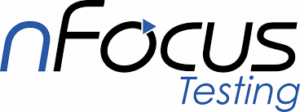
8. nFocus
nFocus operates as a testing consultancy that blends human-led checks with tooling, keeping hands-on work where judgment and nuance matter. Practitioners design and execute scenarios, run exploratory sessions, and support acceptance stages so that risky changes get careful attention before release. Service pages describe how automation scales breadth while manual effort provides depth on critical paths and early builds. Case material even quantifies the effort historically spent on hand-run regression and explains how structured suites evolved from those baselines.
למה כדאי להציץ:
- Human-led verification retained for high-risk flows and acceptance
- Exploratory sessions complement scripted coverage
- Clear stewardship of test cases, steps, and expected results
- Engagement options include flexible resourcing and managed services
השירותים כוללים:
- Scenario design and execution across web and mobile user journeys
- Exploratory walkthroughs with reproducible defect notes
- Manual regression passes on impacted areas before full suites run
- Acceptance support with checklists and evidence captured for sign-off
צרו קשר:
- אתר אינטרנט: www.nfocus.co.uk
- דוא"ל: info@nfocus.co.uk
- פייסבוק: www.facebook.com/nfocustestingltd
- טוויטר: x.com/nfocus_ltd
- LinkedIn: www.linkedin.com/company/nfocus-ltd
- אינסטגרם: www.instagram.com/nfocustesting
- כתובת: מרכז החדשנות האלקטרונית, Shifnal Road Priorslee, Telford, Shropshire TF2 9FT
- טלפון: +44 370 242 6235

9. AscentiQ Solutions
AscentiQ Solutions describes a delivery style where hand-run checks anchor the early and critical stages of quality work. Guides for web and platform testing state that teams use manual and automated methods together, with human review validating behavior, interface details, and business goals before scale-up. UAT materials are explicit about mixing approaches to assess back end behavior, UI, and overall system performance against requirements. The outcome is a trail from scenario design to issue capture that preserves context while automation grows coverage.
Service pages reiterate the same pattern across functional, API, and platform-specific work. The automation offering is framed as a supplement that runs in parallel while QA specialists dig through the product by hand, documenting friction points and confirming fixes. This pairing shows up again in broader service descriptions for teams that need consistent verification without losing the insight that comes from real-device, real-user flows. It’s a practical balance rather than an either-or stance.
תכונות בולטות:
- Manual checks positioned as a foundation with automation added for scale
- Real-device walkthroughs used to surface navigation and UX issues
- UAT services link human observation to business acceptance goals
- Documentation and defect evidence kept readable for stakeholders
מה הם מציעים:
- Manual functional passes aligned to feature intent and risk
- Exploratory reviews with screen-by-screen notes and repro steps
- Sanity and smoke runs on fresh builds prior to wider cycles
- Interface and content checks with recommendations for product teams
Contact info:
- אתר אינטרנט: ascentiqsolutions.co.uk
- דוא"ל: sales@ascentiqsolutions.co.uk
- Facebook: www.facebook.com/Ascentiq-Solutions-1622336601313319
- טוויטר: x.com/AscentIQ_
- LinkedIn: www.linkedin.com/company/ascentiq-solutions
- כתובת: משרד T31 103 Cranbrook Road, Ilford, לונדון, IG1 4PU
- טלפון: 020 3435 6842

10. KiwiQA
KiwiQA publishes a dedicated description of manual testing that focuses on testers exercising the application as an end user would and working through predefined cases to confirm requirements. The service language is straightforward about where this helps most: verifying functionality directly, capturing issues with precise steps, and confirming behavior ahead of release. The main services overview lists manual testing alongside categories such as web, mobile, security, and UAT, indicating the practice sits within everyday delivery rather than as a side annex.
Additional materials on outsourcing spell out the role for human execution even when automation is present, noting specific situations where manual techniques are preferable. That includes sessions designed to validate behavior that resists scripting or where rapid, targeted checks are needed around a change. The emphasis is on picking the tool for the job and keeping testers in the loop when judgment calls are required.
על מה הם מתמקדים:
- Manual execution framed as purposeful work within day-to-day delivery
- Service pages and blog content align on division of labor with automation
- Predefined cases and end-user style checks used to validate requirements
השירותים כוללים:
- Hands-on functional testing with requirement-linked cases
- Exploratory sessions targeting edge cases and visual quirks
- Manual regression on changed modules with focused checklists
- Cross-environment verification on selected browsers and devices
Get in touch:
- אתר אינטרנט: kiwiqa.co.uk
- דוא"ל: sales@kiwiqa.com
- פייסבוק: www.facebook.com/kiwiqaservicesptyltd
- טוויטר: x.com/KQSPL
- LinkedIn: www.linkedin.com/company/kiwiqa-services
- כתובת: Vista Business Centre 50 Salisbury rd Hounslow TW4 6JQ בריטניה
- טלפון: +61 472 869 800
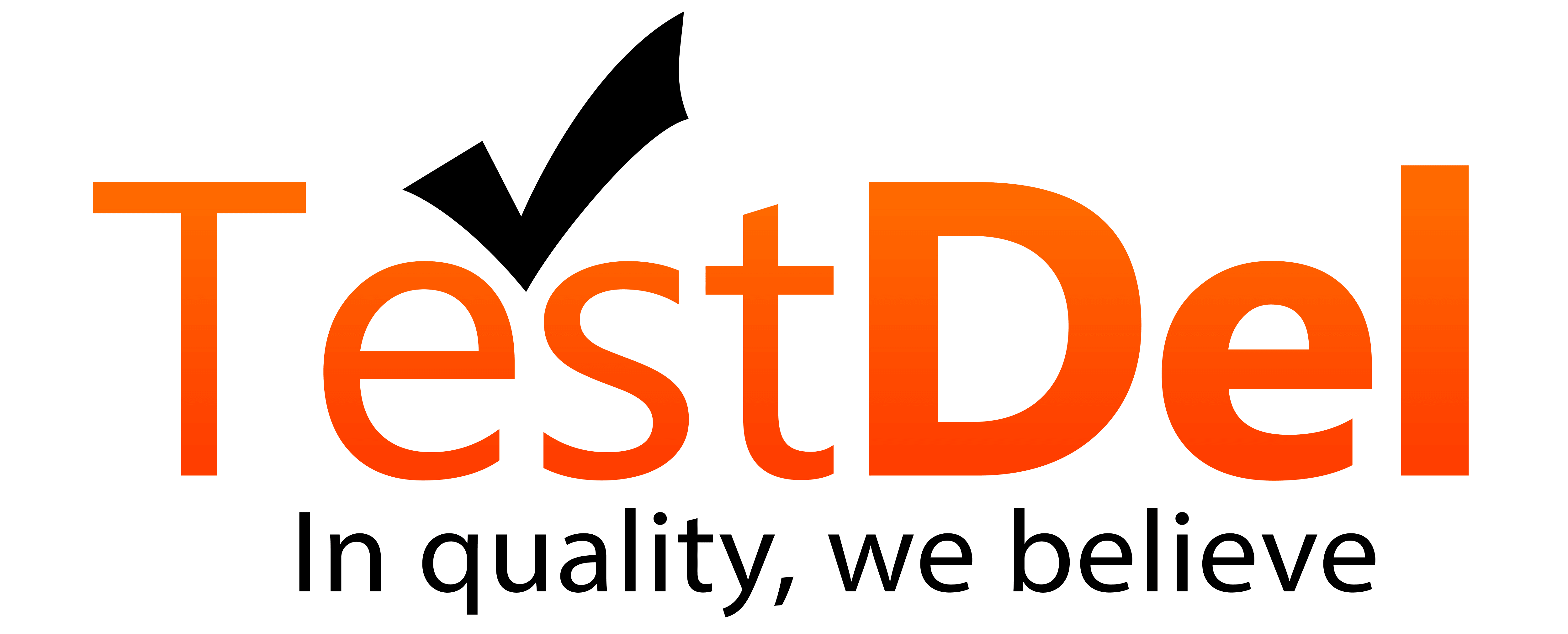
11. TestDel
TestDel works as an independent QA partner for product teams that need clear, methodical checks before shipping. Manual testing sits at the center of the delivery: specialists prepare practical test scenarios, run exploratory sessions to stress real user flows, and record defects with reproducible steps and impact notes. The scope spans web, mobile, and desktop applications, with cross-browser and cross-device reviews where it matters most. For data-heavy builds, the team extends testing to ETL pipelines and data quality so transformations don’t silently skew results.
למה אנשים בוחרים בהם:
- Independent QA provider focused on web, mobile, and desktop testing
- Manual workflows with structured cases plus exploratory practice
- Managed testing option for teams that want an external test function
- Consulting available for process setup, tooling, and QA governance
היצע עיקרי:
- Manual functional testing for web, mobile, and desktop applications
- Regression and smoke runs aligned to release cadences
- Exploratory sessions to uncover usability and edge-case issues
- Cross-browser and cross-device checks for target environments
- Test case design, checklist creation, and evidence-based defect reporting
מַגָע:
- אתר אינטרנט: testdel.com
- דוא"ל: team@testdel.com
- פייסבוק: www.facebook.com/testdelgroup
- טוויטר: x.com/testdelgroup
- LinkedIn: www.linkedin.com/company/testdel/about
- אינסטגרם: www.instagram.com/testdelgroup
- כתובת: 21 Woodfield Road, Hounslow, Middlesex TW4 6LL, בריטניה
- Phone: +44 207 993 60 54

12. SoloWay Tech
SoloWay Tech describes a QA & Testing offering where manual, automation, and load testing play complementary roles. The services page explicitly lists Manual Testing, and case materials talk about continuous functional, usability, and security checks across releases. Real-device walkthroughs and scenario-driven reviews show up as first-line activities before scaling with tools. The approach reads as pragmatic – start with people validating flows, then extend coverage through automation where repetition appears.
Project write-ups add operational detail, including pipeline-enabled deployments supported by ongoing QA cycles. That mix lets teams ship while still catching UI quirks, copy issues, or logic gaps that only a human will notice. The public articles tilt more toward delivery guidance, yet the service list makes the manual component clear and accessible. In practice it means testers map scenarios to business goals, then record crisp evidence as changes move through stages.
מדוע הם בולטים:
- Manual Testing offered within the QA & Testing service line
- Case studies reference functional, usability, and security checks across iterations
- Automation and load testing used to extend human-led coverage
הם מציעים:
- Scenario-based functional reviews with documented steps
- Usability sessions capturing friction points and suggested adjustments
- Manual smoke and sanity checks per build before wider runs
- Compatibility sweeps across selected browsers and devices
- Acceptance support with concise issue logs and retest notes
מַגָע:
- Website: soloway.tech
- E-mail: info@soloway.tech
- Facebook: www.facebook.com/soloway.tech
- Twitter: x.com/SolowayTech
- LinkedIn: www.linkedin.com/company/soloway-tech
- Instagram: www.instagram.com/soloway_tech
- Address: 7 Bell Yard Street, London, WC2A 2JR, England
- Phone: +44 20 457 72 587
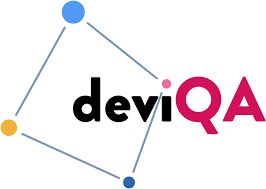
13. DeviQA
DeviQA publishes a dedicated manual testing service that lays out where human execution makes the most sense – exploratory work, usability, and nuanced UI behavior. The description is explicit about testers running cases without scripts to confirm functionality and surface defects with clear reproduction paths. A broader services catalog also lists manual testing and independent QA, which places this work within everyday delivery rather than as a side stream.
Engagement options range from dedicated manual QA engineers to full teams, giving projects a straightforward way to staff hands-on verification. That flexibility appears throughout site copy and FAQ-style sections, with an emphasis on traceable results and communication that fits common workflows. The framing is practical – pick manual methods for areas where judgment matters, then add automation for durable regression.
מה שהופך אותם לייחודיים:
- Dedicated manual testing service with clearly stated use cases
- Option to engage individual manual QA engineers or full teams
- Service catalog includes manual and independent QA alongside other offerings
- Knowledge hub publishes guidance on manual QA practices
מה הם עושים:
- Exploratory reviews and ad-hoc checks to probe edge cases
- Requirement-linked test case authoring and execution with defect evidence
- Manual regression focused on impacted areas during iterations
- Cross-platform verification on target devices and browsers
- UAT session facilitation with concise sign-off artifacts
Get in touch:
- אתר אינטרנט: www.deviqa.com
- דוא"ל: info@deviqa.com
- פייסבוק: www.facebook.com/deviQASolutions
- לינקדאין: www.linkedin.com/company/deviqa
- כתובת: לונדון, 9 Brighton Terrace
- טלפון: 1 805 491 9331+

14. Prolifics Testing
Prolifics Testing frames quality as an engineering activity where human judgment leads, then tools expand coverage. Service pages describe functional checks that confirm what the software actually does, supported by structured cases, exploratory sessions, and evidence captured in standard suites. Their BA360 accelerator is presented as a way to jumpstart manual test design with black box, white box, and exploratory techniques before scaling automation, which keeps riskier paths under close watch.
למה כדאי לבדוק אותם:
- Manual design and execution called out alongside tool-driven suites
- Exploratory work used to probe edge cases and UX behavior
- Device and browser coverage addressed with real walk-throughs
- Advisory content reinforces a balanced human-plus-automation model
תחומי ההתמחות שלהם:
- Human-led functional passes mapped to user journeys
- Exploratory sessions with reproducible steps and screenshots
- Manual regression on changed modules prior to pipeline runs
- UAT support with checklists and sign-off evidence
- Compatibility sweeps across selected browsers and devices
Contact info:
- אתר אינטרנט: www.prolifics-testing.com
- דוא"ל: info@prolifics-testing.com
- טוויטר: x.com/prolificstestuk
- LinkedIn: www.linkedin.com/company/prolificstesting
- כתובת: 3 Penta Court Station Road Borehamwood, בריטניה, WD6 1SL
- טלפון: +44 (0) 20 8905 2761
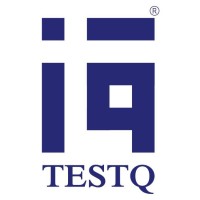
15. TESTQ Technologies
TESTQ Technologies publishes a clear definition of manual testing and where it fits in day-to-day delivery. The site describes testers exercising the product as an end user, confirming behavior without scripts, and documenting results so defects can be reproduced and fixed. Services pages list manual and automated functional testing alongside usability, security, and performance work, with options for advisory support and TCoE setup. Career and portfolio materials echo the same pattern – write cases, execute them by hand, capture outcomes, then decide what should graduate to automation.
That mix is presented as pragmatic rather than ideological. Manual runs handle nuance and freshly changed paths, while frameworks carry large regressions and monitoring. The result is a traceable trail from scenario design to acceptance, with human checks kept visible at release gates like smoke and sanity. Tool mentions such as Selenium and JMeter appear as enablers, not replacements, which keeps the approach grounded.
למה אנשים אוהבים אותם:
- Manual execution described in plain terms with end-user focus
- Service catalog spans functional, usability, security, and performance
- Documentation emphasized through case writing and result capture
השירותים כוללים:
- Requirement-linked test case authoring and hands-on execution
- Exploratory reviews that target edge cases and visual glitches
- Smoke and sanity checks on fresh builds before wider cycles
- Manual regression for impacted areas with concise defect logs
- Cross-environment walkthroughs on target devices and browsers
צרו קשר:
- אתר אינטרנט: testqtech.com
- דוא"ל: testq@testqtech.com
- LinkedIn: www.linkedin.com/company/testqtech
- כתובת: 49C, The Parade, Oadby, Leicester LE2 5BB, בריטניה
- טלפון: 0116 407 0534
Wrapping It All Up
When selecting a company for manual testing, it is worth remembering that the task is not limited to checking functionality. It also involves understanding how the product feels to the end user. Automation covers many scenarios, but a human tester can catch an odd reaction in the system or an awkward interface behavior. It’s similar to a driver noticing a strange sound in a car before diagnostic tools pick it up.
That is why choosing a partner for manual testing is less about finding the “best” on paper and more about understanding who can integrate into your workflows, handle the right level of detail, and respond to changes in time. It is a practical step that directly affects both product stability and user trust.


